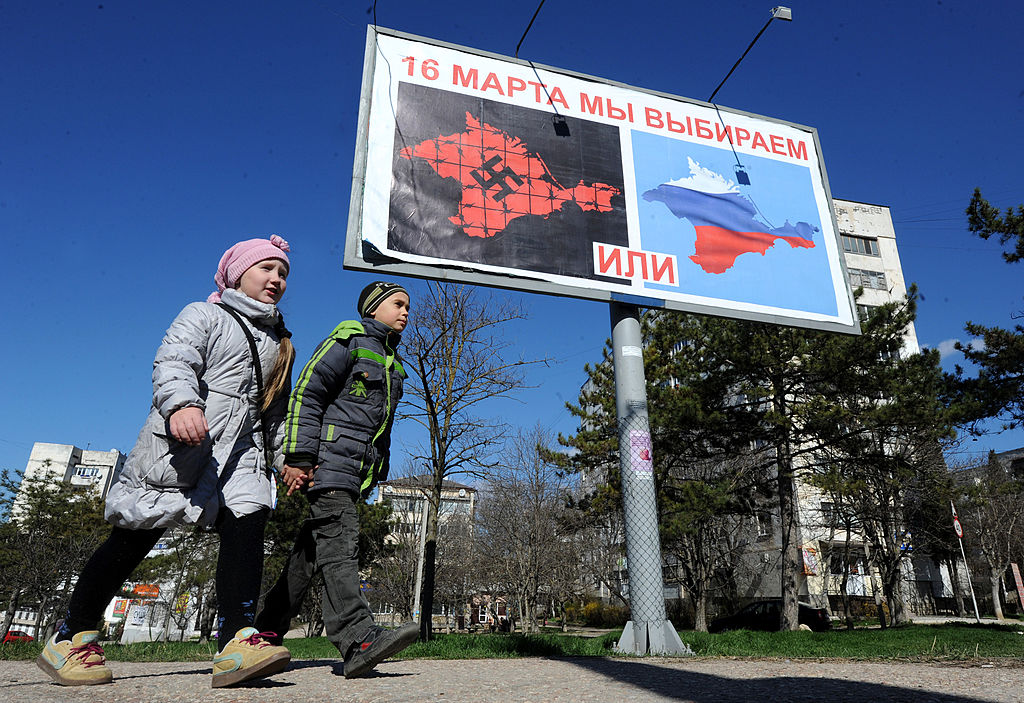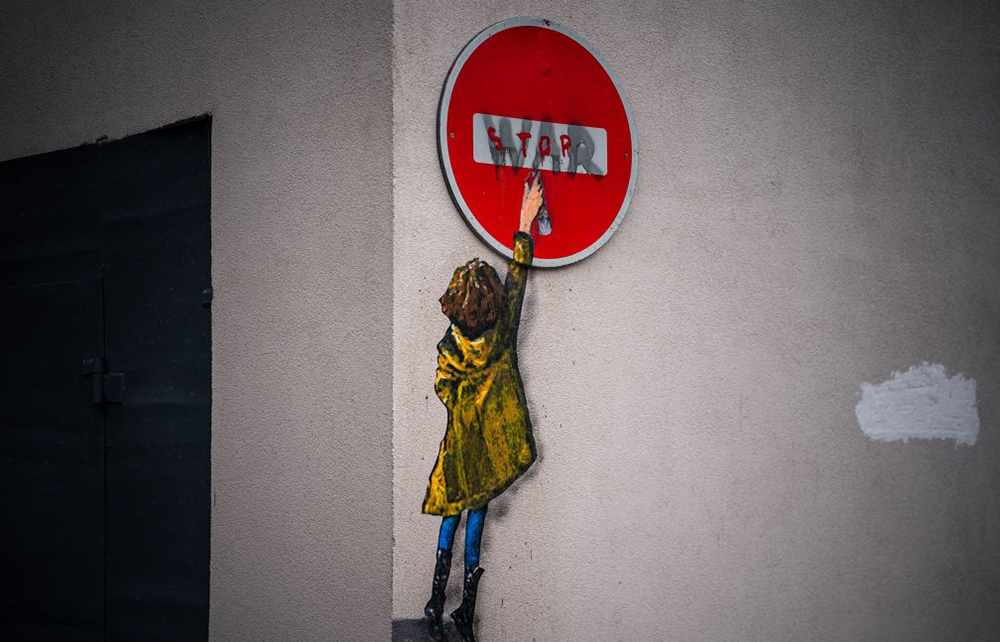Among Ukrainians, there is little debate about how the war will end. The overwhelming consensus is that it cannot conclude until Russia has been fully repelled, and Ukraine’s borders are returned to the 1991 frontier when independence was declared after the Soviet Union collapsed.
This means removing Russian troops from Crimea and the self-proclaimed republics of Luhansk and Donetsk in the Donbas region.
Of course this is not an easy mission. But for Ukrainians, the alternative is unthinkable. The mass graves uncovered in Bucha have shown us what Russian occupation means. We have also seen, in the broken promises of the Minsk agreements, what any truce with Vladimir Putin is worth. Why should we agree to a fake peace deal when we know Putin will ignore it and unleash war on us again?
As a Ukrainian, it’s odd to read some of the theories about what’s going on. Are we pawns, fighting because we’ve been put up to it by the West? No, we held off Putin with very little help in the first few weeks of war. Even if the West stops arming us, we will continue to fight. We know the alternative is worse: subjugation and cultural annihilation.
Discussions in the West over Ukraine’s future often stall when it comes to the question of Crimea and the Donbas. It’s argued that many Russian-speakers look to Moscow for protection and see Ukraine as the invader. Yes, Ukraine’s history means we have many Russian-speakers who once felt closer affinity with Moscow than Kyiv and once feared discrimination at the hands of what they perceived to be Ukrainian nationalists. It was a similar problem to those of Northern Ireland and Cyprus: historic immigration patterns creating communities with competing identities. That’s why many in the West are uneasy about taking sides.
But this analysis ignores the extent to which things have changed since 2014 when Russia invaded Crimea and eastern Ukraine. That year, independence referendums were staged in Donetsk and Luhansk and overseen by soldiers in unmarked uniforms. Like all wildcat referendums, the votes were boycotted by those who opposed the separatists.
That’s not to say that public opinion wasn’t split. Polls in early 2014 suggested that about a quarter of the voters in the two areas wanted to be part of Russia. However, this was before Putin’s mercenaries began flattening, rather than saving, the Donbas.

Over the past nine years a mass exodus has taken place, with millions in the east fleeing the fighting between Ukrainian and Russian soldiers. The region was looted by separatists and the local economy destroyed. It fell to Kyiv to pay pensions and provide electricity and water to these territories Putin now claims are part of Russia. The original Donbas hopes of wealth from Russkiy Mir were quickly shattered.
Crimea was different: it holds huge ideological and political value for Putin. Since taking it, he has filled it with money and Russians. I witnessed this when I hitchhiked around it a few years ago. I also saw how Ukrainian loyalists had learned to keep quiet: showing a blue-and-yellow flag would risk imprisonment or deportation.
Today, if the survivors of bombed-out eastern Ukraine and those in Crimea were asked if they’d prefer to live under Putin or under Kyiv, their answer would probably be very different. That’s why the pre-2014 opinion polls for Crimea and the Donbas should now be discarded. There’s no question that nine years of war have seen public opinion amongst Russian-speaking parts of Ukraine turn sharply against Moscow. In part, this is why Putin invaded again last year: his constituency in Ukraine was shrinking.
At the start of the invasion, it seemed that Ukraine had no chance of winning. Now, victory is possible. My friends who fled Donetsk nine years ago have a realistic hope of returning home under a Ukrainian flag.
Self-belief has become essential to survival. We are optimistic, but not naive. Peace talks will happen sooner or later. There may be a negotiation over Crimea; it may become self-governing (within Ukraine’s borders). But all Russian troops would have to leave. Ukrainians will keep fighting in the belief that to cut a deal that offers Putin a compensatory slice of Ukraine, would be to guarantee another war.
Keep up to date with the latest developments in the war with Svitlana’s Ukraine in Focus newsletter.







Comments